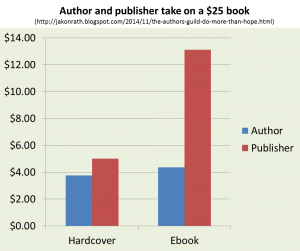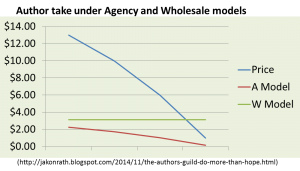In a feat of utmost unexamined irony, the habitual bashers of corporate monster Amazon over at Melville House report on how Hachette has now resumed gobbling up literary properties like some sort of … uh … corporate monster?
Hachette bought Black Dog & Leventhal yesterday …
Hachette’s had a big year. About four months ago, the company did not end up buying Perseus … We all assumed it had to do with the Amazon standoff … All of that ended last week … So who will Hachette acquire next?
Hachette US bought the Hyperion backlist, and formed Hachette Books to start acquiring in a similar vein. Hachette UK bought Constable & Robinson in February and Quercus in March. They’re buying a whole lot of small nonfiction publishers with strong backlists.
Wouldn’t it be nice if Hachette takes a moment from devouring everything in sight to reward its boot-licking minions at the Authors Guild for standing by them against Amazon?
But … probably not, as the hilarious Dan Meadows explains (after quoting comments from Authors Guild president Roxana Robinson):
“It is our hope that Hachette, in light of the loyalty its authors have shown throughout this debacle, takes this opportunity to revisit its standard e-book royalty rate of 25 percent of the publisher’s net profits.”
Sweet Jesus! Tell me you’re not that naive. Loyalty?! What part of “billion dollar corporate negotiation” don’t you understand? You hope, in light of your “loyalty”, that they take this opportunity to revisit that standard? What opportunity would that be? The one where they’ve settled up with Amazon, already have you all under contract at that standard, and don’t need to name-drop you morons in an obviously coordinated PR assault on a rival anymore?
The opportunity to do a hell of a lot more than “hope they revisit the standard” was the past seven months when Amazon had Hachette over a barrel and the other publishers were all worried they were next. The only opportunity you have now is for them to laugh in your face.
Yup. And when they do, don’t get made when we say we told you so.


 Every once in a while, a book story comes along that’s so weird and cool, that you almost think it has to be an Onion parody. Get ready to roll a saving throw vs. spells, dear readers!
Every once in a while, a book story comes along that’s so weird and cool, that you almost think it has to be an Onion parody. Get ready to roll a saving throw vs. spells, dear readers!
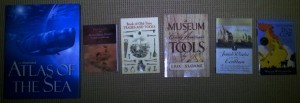 There’s no rule about how to organize your own book collection, but National Public Radio listeners had some interesting suggestions:
There’s no rule about how to organize your own book collection, but National Public Radio listeners had some interesting suggestions: 
 In chapter 120 of the Chinese classic, Wen-Tzu’s Book of Pervading Mystery (
In chapter 120 of the Chinese classic, Wen-Tzu’s Book of Pervading Mystery ( From the New York Times:
From the New York Times: How would you feel if I told you that a hack “
How would you feel if I told you that a hack “
 Michael Bourne at The Millions takes on the egalitarian myth behind teaching the craft of writing:
Michael Bourne at The Millions takes on the egalitarian myth behind teaching the craft of writing: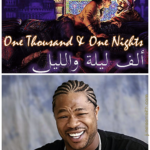
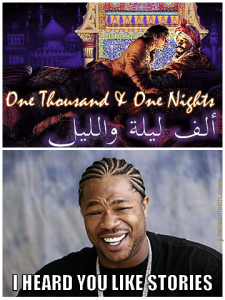
 The Passive Voice blog
The Passive Voice blog 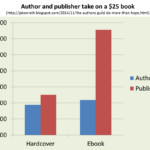
 The Authors Guild has, many times in the past, voiced that ebook royalties should be raised. So do something about it.
The Authors Guild has, many times in the past, voiced that ebook royalties should be raised. So do something about it.